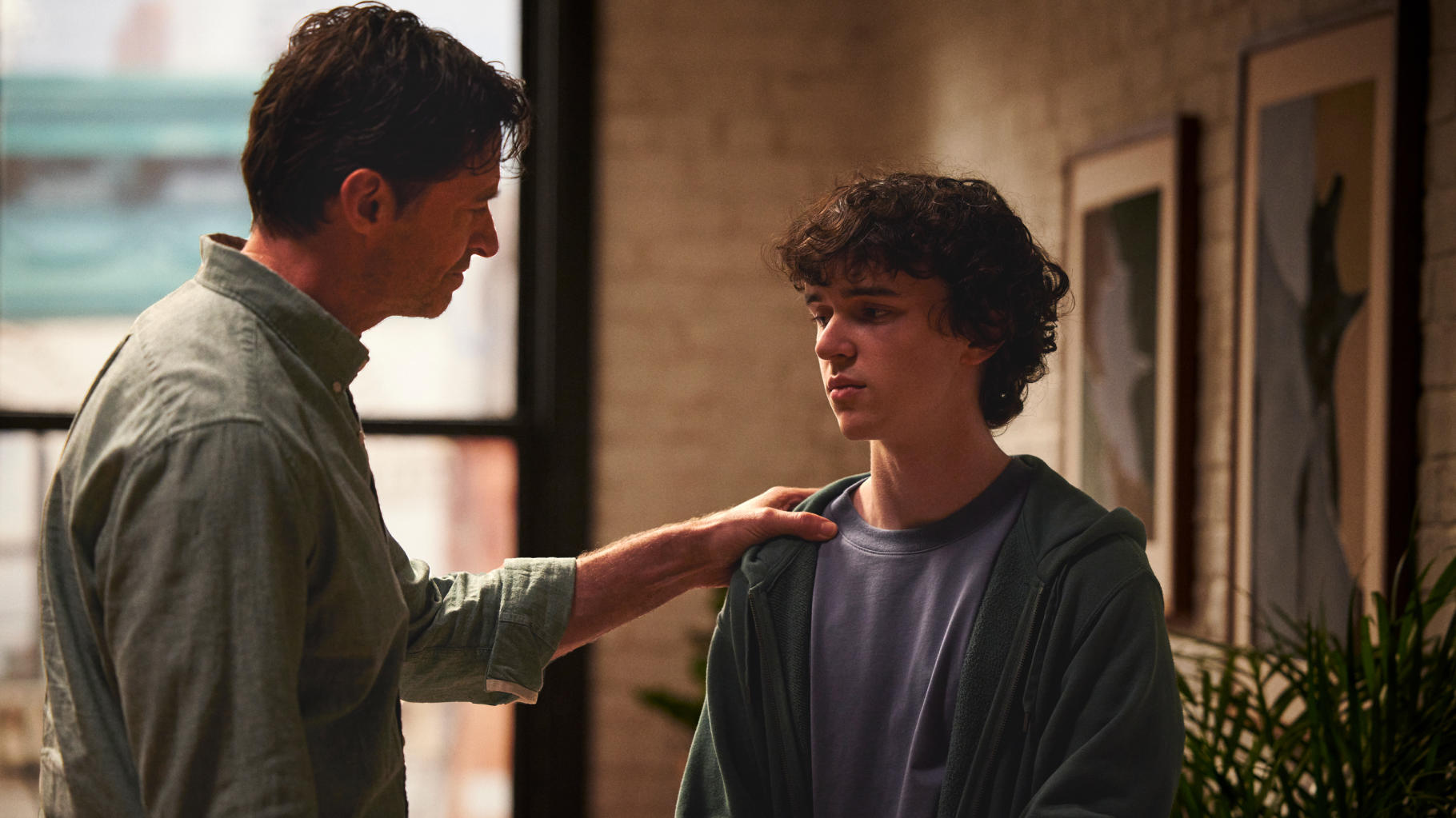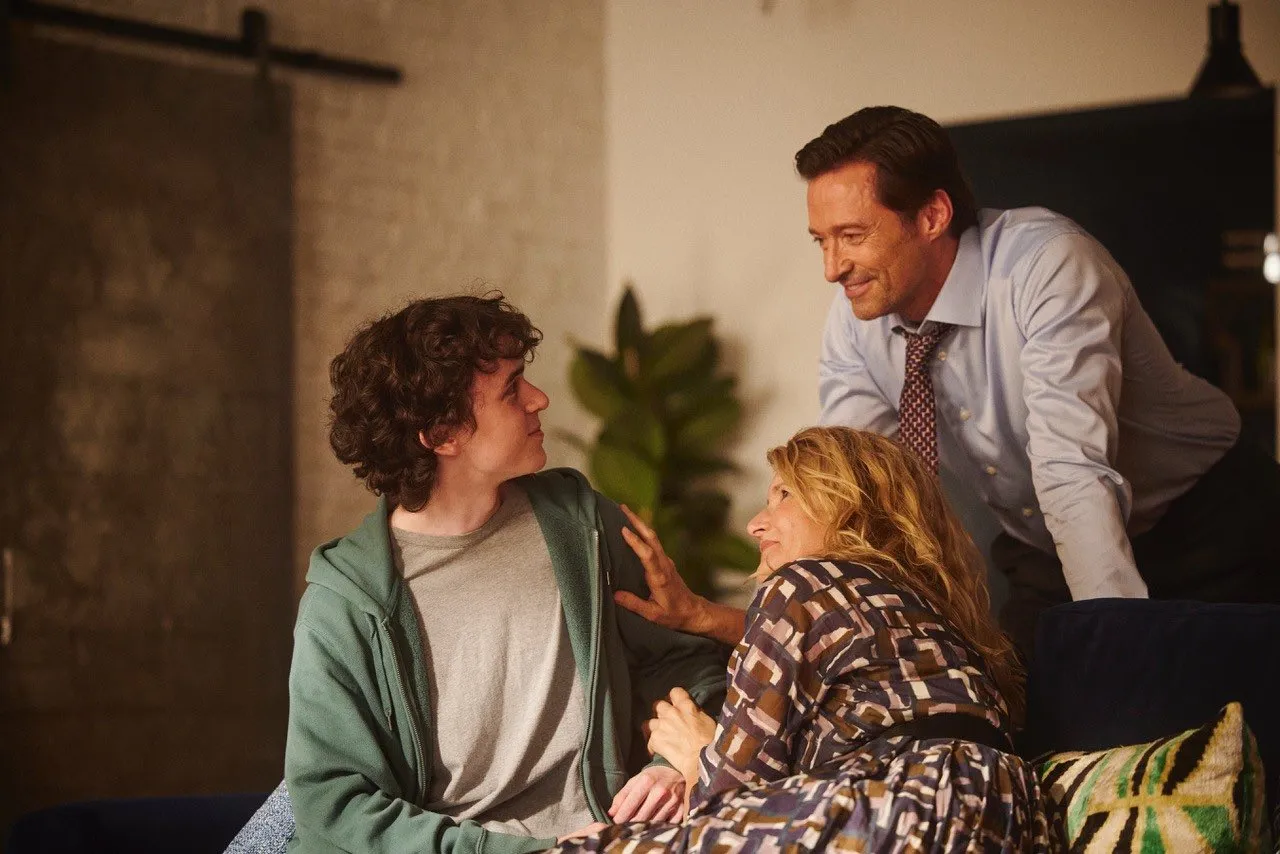In the drama film “The Son,” directed by Florian Zeller and featuring an outstanding cast including Hugh Jackman, Laura Dern, Zen McGrath, and Vanessa Kirby, we witness a story that delves into the aftermath of a bitter divorce and its impact on a troubled teenager. Following the success of Zeller’s previous film, “The Father,” “The Son” explores similar themes of family dynamics and emotional turmoil. Brace yourself for a heart-wrenching journey as we unravel the ending of this powerful film. Warning: Spoilers ahead!
The Son Plot Synopsis
The story revolves around Nicholas, a depressed teenager grappling with the consequences of his parents’ acrimonious divorce. After enduring a difficult period with his mother, Kate, Nicholas decides to move in with his father, Peter, and his new family. However, the transition proves challenging, leading to a downward spiral that profoundly affects everyone involved. To discover how Peter and Nicholas navigate their tumultuous relationship and its repercussions, let’s delve into the ending of “The Son.”
Nicholas’s Struggles Unveiled
Upon discovering that Nicholas has been skipping school for an entire month, Kate seeks Peter’s help. Concerned about his son’s well-being, Peter promptly talks to Nicholas and realizes the extent of his dark thoughts while living with Kate. Nicholas pleads to stay with his father, and Peter readily agrees.

As Nicholas settles into his new home and starts attending a different school, Peter, at Beth’s suggestion, arranges therapy sessions for his son to address his self-harming tendencies. While Nicholas adapts to his new surroundings, Peter’s professional life flourishes when he receives an enticing job offer from Senator Brian Hammer for his upcoming campaign. However, Peter’s demanding schedule leaves him with little time at home, causing him to overlook the growing tension between Beth and Nicholas, who partially blames Beth for his parents’ divorce.
Kate’s Concerns and Unexpected Revelations
During a lunch meeting with Peter, Kate expresses her worries about Nicholas, noting his avoidance of her calls. Seeking reassurance about her son’s well-being, Kate is relieved when Peter informs her that Nicholas is doing well, attending school and even receiving party invitations. However, this news triggers a wave of emotions for Kate, leaving her feeling like a failed mother. A few days later, when Beth discovers a knife hidden under Nicholas’s mattress, Peter realizes that things may not be as rosy as he had believed. As he confronts Nicholas about his relapse into self-harm, a heated argument ensues, with Nicholas accusing Peter of hurting him by cheating on Kate with Beth.
A Downward Spiral

Beth eventually notices Nicholas’s absence from school and informs Peter, leading him to discover that his son has not attended classes since the first day. When Peter confronts Nicholas about this, their argument intensifies. Peter, frustrated by his son’s apparent lack of direction, implores Nicholas to turn his life around. In response, Nicholas blames Peter for his depression, citing Peter’s abandonment of Kate and himself for a new family. The confrontation escalates, resulting in Peter shoving Nicholas to the floor. Realizing his mistake, Peter tries to apologize, but Nicholas locks himself in his room. Shortly after, Kate receives a distressing call informing her that Nicholas has attempted suicide and is now in a psychiatric ward.
The Son Ending: Hope Shattered by Tragic Loss
Following the intense fight between Nicholas and Peter, Beth discovers Nicholas in his room, gravely injured from cutting himself with a knife. An ambulance swiftly arrives to transport Nicholas to the hospital, where Peter and Kate rush to find him. Fortunately, Nicholas survives the suicide attempt, but the doctors insist on keeping him under observation, prohibiting Peter and Kate from seeing him.
During a subsequent visit to discuss Nicholas’s treatment with the doctors, Kate and Peter are reunited with their son. Nicholas begs them to take him home, claiming to have had a terrible experience in the psychiatric ward and insisting on his complete recovery. However, Dr. Harris delivers a devastating blow: Nicholas suffers from acute clinical depression and frequently experiences suicidal thoughts. The self-harm is an expression of his anguish. Understanding the gravity of Nicholas’s condition, Dr. Harris asserts that the risk of a second attempt is too high. Reluctantly, Kate and Peter decide it is best for Nicholas to remain in the psychiatric ward under professional care, even though it breaks their hearts. Yet, a part of them clings to the belief that they alone can rescue Nicholas from the darkness. Unable to bear their son’s suffering, they defy medical advice, sign Nicholas out of the hospital, and take him to Peter’s house.
The Final Tragedy: A Father’s Guilt and Irreparable Loss
As Kate and Peter bring Nicholas home, they fail to detect any warning signs in his behavior. He engages in conversations, prepares tea for his parents, and conceals his true intentions. Oblivious to the depth of his despair, Kate plans to take Nicholas to the movies, and he agrees enthusiastically. Before joining them, Nicholas excuses himself, expressing love and apologies to his parents. Despite his actions contrasting starkly with his previous demeanor, Kate and Peter remain unaware of the impending tragedy.
Earlier in the film, Nicholas stumbles upon a gun kept by Peter in the laundry room, a gift from his father. Aware of its existence, Nicholas takes the gun with him into the bathroom, knowing full well what he intends to do. While Peter should be mindful of the presence of a firearm in the house, coupled with a suicidal teenager, he fails to comprehend the gravity of Nicholas’s state of mind.
As Kate and Peter reminisce about the past in the living room, their blissful ignorance shatters when they hear a gunshot from the bathroom. They rush to the scene, call for an ambulance, but their desperate attempts to save Nicholas’s life are in vain.
Peter’s Life Altered Forever
Peter, haunted by the traumatic loss of his son, grapples with unresolved issues from his own past. His own father, Anthony Miller, neglected him during his teenage years, prioritizing work over family, even in his mother’s final moments. When Peter confronts Anthony about this later in life, his father remains unrepentant and dismissive. Peter, desperate to break the cycle and be a better father than his own, is devastated when Nicholas takes his own life, believing he has failed in his paternal duties.
Even years later, Peter remains unable to move on from the overwhelming grief caused by his son’s death. In one poignant moment, while waiting for dinner guests in his new home with Beth and their younger son, Theo, Peter envisions an alternate reality where Nicholas grows up, becomes a successful writer, and pens a book titled “Death Can Wait,” chronicling his journey as a suicidal teenager. In Peter’s daydream, Nicholas dedicates the book to his father, representing Peter’s fervent desire to be the role model he never had.
Yet, harsh reality ultimately shatters Peter’s hopes and plunges him into an emotional breakdown. Burdened by guilt and remorse, he yearns to be a better father for Theo. However, the weight of Nicholas’s tragic fate remains an indelible scar on Peter’s soul, forever reminding him of the irreversible consequences of his son’s loss.

“The Son” concludes as a poignant exploration of family struggles, the profound impact of mental illness, and the inescapable grip of grief. Florian Zeller’s masterful direction, combined with powerful performances by Hugh Jackman, Laura Dern, Zen McGrath, and Vanessa Kirby, immerses audiences in the tumultuous journey of a fractured family. Through its heart-wrenching ending, the film serves as a stark reminder of the importance of compassion, understanding, and seeking professional help in the face of mental health crises.









